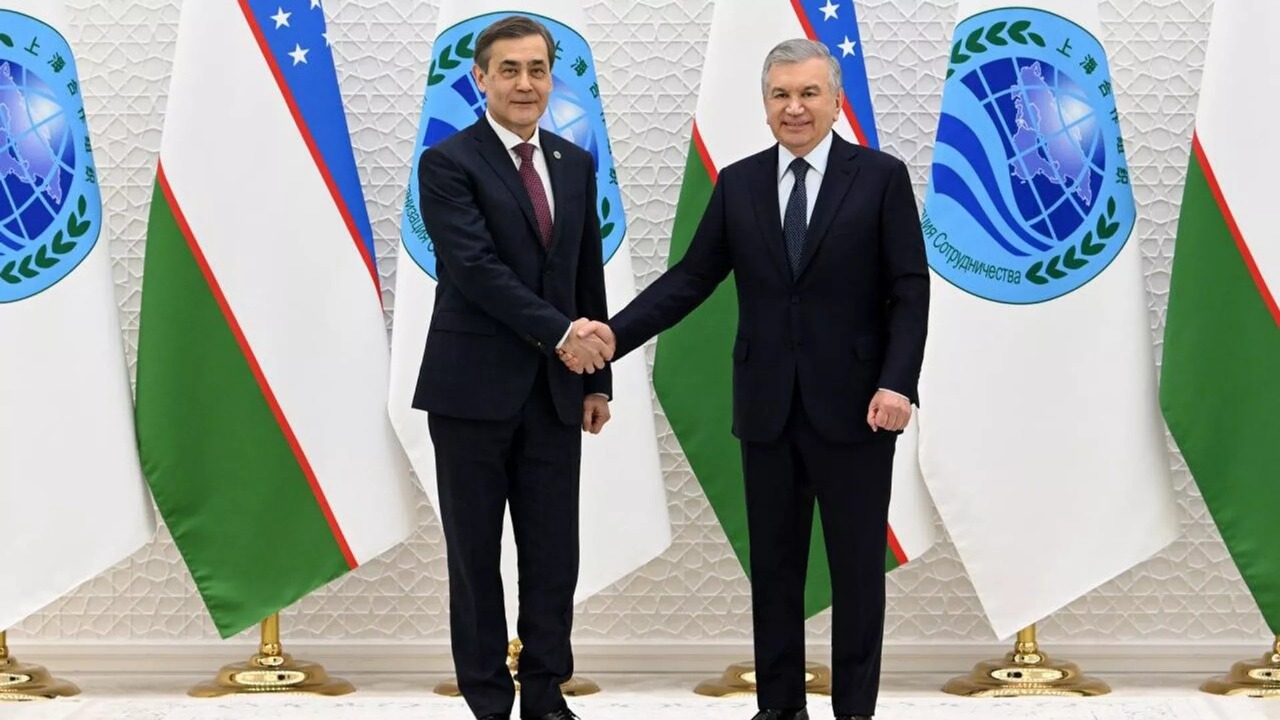BAKU, Azerbaijan, August 30. Today, as the world faces its fair share of trials and regional cooperation, the Shanghai Cooperation Organization (SCO) is stepping up to the plate, playing a pivotal role in keeping the peace and fostering growth across the vast Eurasian landscape. Uzbekistan, a key player in the SCO game, is right in the thick of things, steering the ship towards economic cooperation and transport connectivity. As the clock ticks down to the pivotal summit set to unfold in Tianjin from August 31 through September 1, it’s high time to take stock of Tashkent’s shifting ties with this powerful entity.
Since hopping on the SCO bandwagon in 2001, Uzbekistan has gone from being a player in the game to taking the reins and shaping the blueprint of the organization’s key areas of growth. Under President Shavkat Mirziyoyev, the country’s foreign policy has opened up like a book and taken a pragmatic turn, which has really bolstered its standing on the world stage.
Uzbekistan is always in the ring for peaceful conflict resolution and is keen on building bridges of mutual trust. A significant leap was its suggestion to bring Afghanistan into the SCO fold as an observer state, which garnered a hearty round of applause. This initiative encapsulates Uzbekistan’s strategic intent to foster enduring regional equilibrium and underscores its dedication to the tenets of multilateral diplomatic engagement. At the forthcoming summit, Tashkent is poised to unveil a series of innovative initiatives designed to enhance the synergies of humanitarian and cultural collaboration.
The fiscal strategy constitutes a pivotal catalyst in the dynamics of Uzbekistan–SCO interrelations. The republic is strategically enhancing its commercial linkages with member states, yielding remarkable outcomes. Recent analytics indicate that in 2024, Uzbekistan's trade turnover with SCO member states experienced a robust growth trajectory of 15 percent, achieving unprecedented benchmarks. This advancement was facilitated by streamlined customs protocols and the establishment of innovative logistical pathways.
One of the most pivotal initiatives is the development of the China–Kyrgyzstan–Uzbekistan railway infrastructure. This initiative will facilitate the interconnection of the three nations while establishing the most efficient terrestrial conduit from China to Central Asia, with prospective extensions to South Asia via the Trans-Afghan Corridor. Industry analysts project that the rail infrastructure will yield an annual revenue stream of approximately $200 million in transit operations, while concurrently optimizing logistics by markedly decreasing delivery timelines.
Uzbekistan is also bringing in investment actively. In 2024, the volume of foreign investment in the country’s economy shot up to over $10 billion, with a significant portion coming in from SCO member states. This shows that international partners are backing up the region’s economic stability and potential.
Uzbekistan is actively advancing a comprehensive digital transformation and innovation strategy within the framework of the Shanghai Cooperation Organization. In the year 2024, the strategic framework known as the “Roadmap for Cooperation in the Field of Information Technology,” spearheaded by Tashkent, was officially ratified. It conceptualizes collaborative initiatives aimed at developing digital ecosystems for commercial and governmental services, alongside the sharing of best practices in the realm of cybersecurity. Moreover, Uzbekistan champions the advancement of scientific and educational synergies, advocating for the creation of a consolidated SCO research hub dedicated to the exploration of climate dynamics, optimized hydric resource management, and biotechnological innovations.
In order to enhance the economic synergies within the SCO framework, a series of pivotal documents have been conceptualized and operationalized in recent years. These include the “Program of Multilateral Trade and Economic Cooperation of SCO Member States up to 2035,” the “Joint Action Plan to Promote Intra-Regional Trade within the SCO,” the “Program to Support Industrial Cooperation between the Business Communities of SCO Member States,” and the SCO Economic Development Strategy up to 2030. Within this framework, the initiatives put forth by Uzbekistan hold significant strategic value: the establishment of SCO Industrial Cooperation Centers, the formation of an Alliance of Special Economic Zones among SCO nations, and the endorsement of a Program for a New Economic Dialogue among member states.
When it comes to the bigger picture, Uzbekistan is not just putting all its eggs in one basket; it’s also keen on fostering intercultural ties within the SCO, seeing the value in building bridges beyond the realms of politics and economics. In 2024, Tashkent served as the epicenter for the inaugural SCO Culture Festival, aggregating a multitude of participants and attendees. Such occurrences bolster diplomatic relations and enhance intercultural dialogue among nations, exemplifying the diverse cultural legacies of the broader geopolitical landscape. Uzbekistan is strategically engaged in the execution of collaborative educational initiatives. Currently, over 15,000 scholars from SCO member nations are engaged in academic pursuits at institutions across Uzbekistan, facilitating the transfer of knowledge and fortifying inter-youth connections. These initiatives underscore that the SCO functions as a multifaceted platform for geopolitical alignment and economic synergies, while simultaneously serving as a conduit for humanitarian collaboration.
Joining the SCO gives Uzbekistan a golden opportunity to put its best foot forward and bolster its standing in the international arena. The nation has emerged as a pivotal locus for convening global symposia and colloquia, highlighting its ascending prominence in the geopolitical landscape.
President Shavkat Mirziyoyev, as a forward-thinking architect of progress, is strategically oriented towards the paradigms of modernization and sustainable development within the context of Uzbekistan's socio-economic landscape. His individual input into this paradigm shift is catalyzing the nation’s evolution into a pivotal engine of integration and economic expansion within the SCO framework. Uzbekistan is adeptly synchronizing its developmental paradigm with the strategic objectives of the organization, thereby catalyzing novel opportunities for the entire regional ecosystem.







